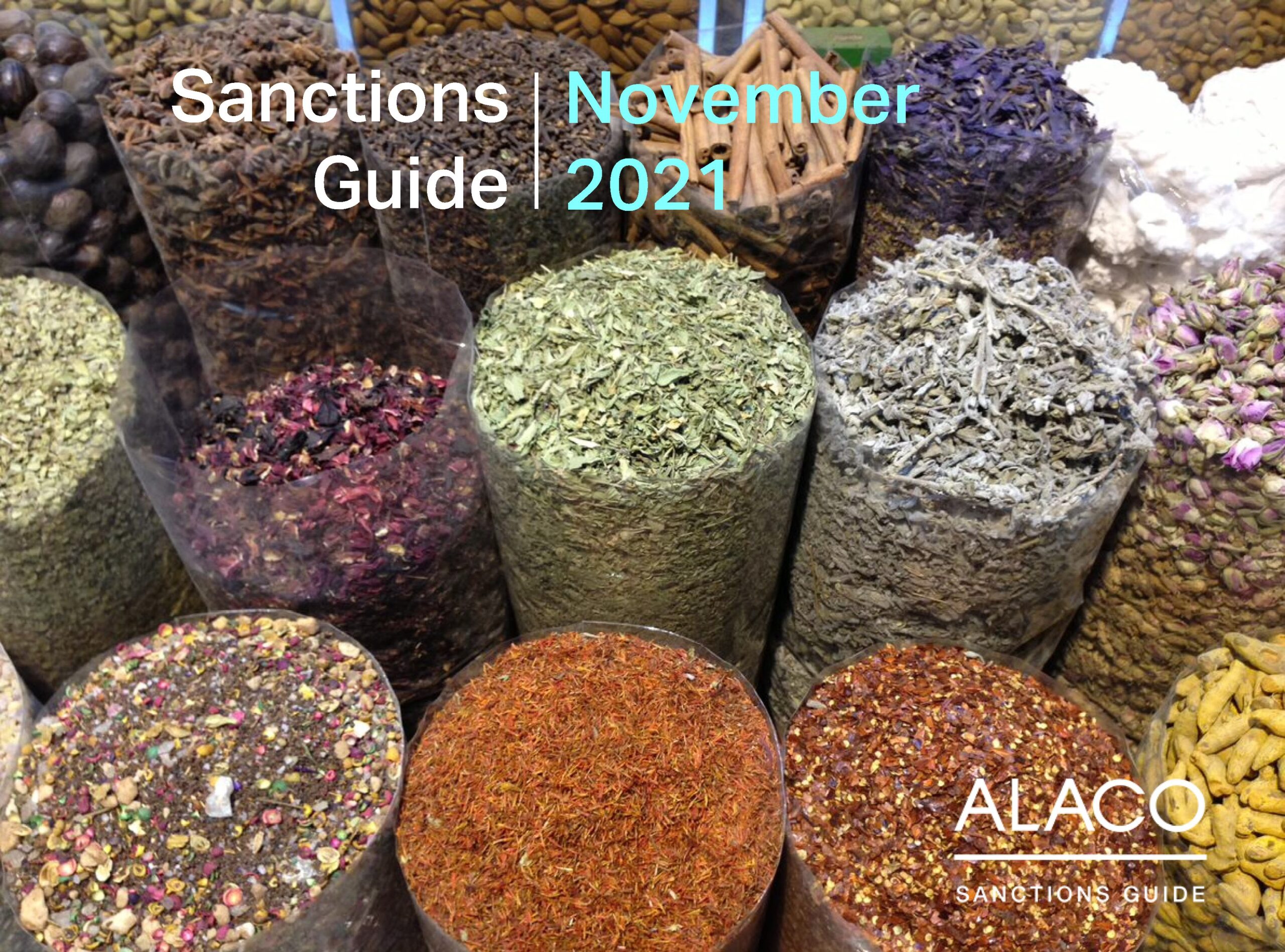This month has seen the publication by both OFSI and OFAC of reviews of their sanctions activity over the past year, both of which included new detail on their proposed strategy and focus over the coming months. The US House of Representatives has also passed a new a bill that would introduce further Nord-Stream 2 sanctions and the EU and SECO have designated eight Russian nationals deemed to have contributed to undermining the territorial integrity of Ukraine:
- On 18th October 2021 the US Treasury Department released a report containing the findings of its 2021 Sanctions review, commissioned by Secretary of the Treasury Janet Yellen. The review provides important early insights into how the Biden administration intends to deploy financial sanctions and, as expected, emphasised its commitment to highly targeted programmes and co-ordination with its allies – representing something of a break with the policies pursued under its predecessor. Also of note is the Treasury’s continued engagement with the world of cryptocurrency, which is described in the review a threat to the volume of dollar-denominated international transactions and therefore the effectiveness of US sanctions. On 11th October 2021 OFAC published a brochure entitled Sanctions Compliance Guidance for the Virtual Currency Industry, setting out in detail the sanctions compliance obligations incumbent on crypto currency service providers and including a case study of an OFAC sanctions violation involving virtual currency. On 21st September 2021, OFAC sanctioned cryptocurrency exchange Suex for having facilitated transactions involving illicit proceeds from a series of eight ransomware attacks.
- On 1st October 2021 the US House of Representatives passed two bills which would authorise additional US sanctions if they subsequently become law. One of these, the National Defence Authorisation Act for Fiscal Year 2022, would end the current national interest waiver on Nord Stream 2-related sanctions and authorise mandatory sanctions on foreign entities involved in the planning, construction and operation of the pipeline. The bill will now be debated by the Senate.
- On 14th October 2021 OFSI published its 2020-2021 Annual Review, providing a factual overview of its activity over the financial year. The Review noted 278 new designations during this period and the freezing of £12.2 billion worth of assets in the UK under sanctions regulations as of September 2020. A total of £11.53 billion of this amount is connected to the Libyan government. The Annual Review reaffirmed the UK’s autonomy with regards to sanctions policy post-Brexit and committed OFSI to playing a central role in the government’s economic crime agenda.
- On 8th October 2021 OFAC delisted Tehran-headquartered Mammut Industrial Group and its subsidiary Mammut Diesel. The group had been designated in September 2020, having been deemed to be supplying “military grade, dual-use goods” to Iran’s Shahid Hemmat Industrial Group, which manufactures liquid-propelled missiles. OFAC subsequently denied reports that the move was linked to ongoing talks in Vienna over the potential revival of the JCPOA.
- Key designations this month include the EU and shortly thereafter SECO’s listing of eight members of the Russian judiciary and security officers deemed to have contributed to the undermining of the territorial integrity of Ukraine by “enforcing Russian law in the illegally-annexed Crimea and Sevastopol.” Other new designations include the addition of Osama Al Kuni Imbrahim to the UN’s Libyan sanctions list and OFAC’s imposition of sanctions against Jaime Humberto Higuera Gonzalez, known as “El Tunco”, under its Counter Narcotics program.


